Online personal training has become incredibly popular in the last few years. Various lockdowns during the Covid-19 pandemic and the rise of personal training influencers have encouraged people to look online for ways to boost their fitness – but this online approach isn’t always fully understood.
In this guide, we’ll explain everything there is to know about working with online personal trainers.
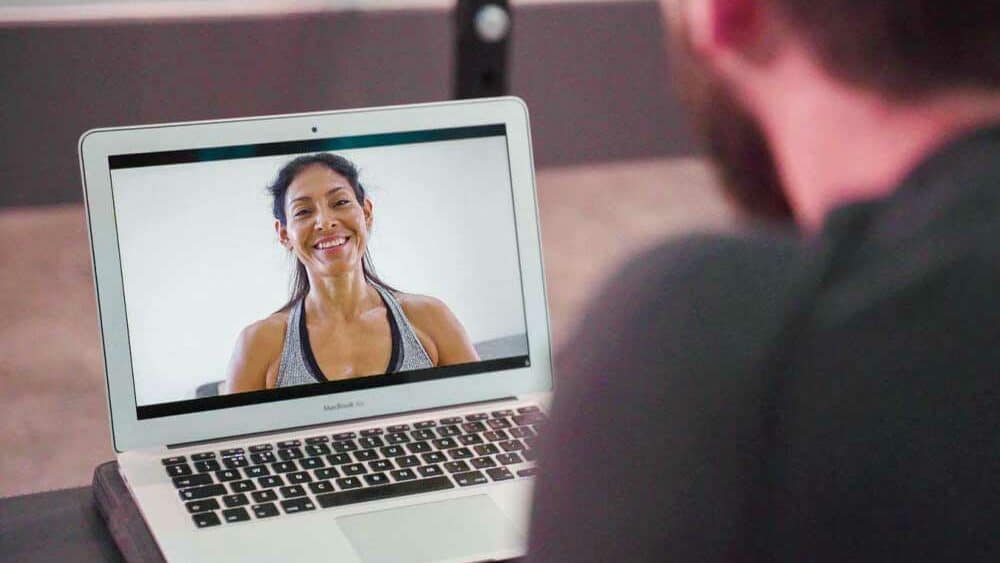
We’ll walk you through what online training looks like – both with a typical online trainer and, more specifically, with Fitness Lab. We’ll also offer plenty of additional info, including:
- The pros and cons of online personal training
- How to make sure you stay motivated with online coaching
- How to find an online personal trainer that’s right for you
We’ll also answer people’s questions about online fitness coaching – covering costs, any necessary equipment, and how you can make sure you’re working with appropriately qualified personal trainers.
When you’ve finished reading, you’ll be able to decide whether online training is going to be right for you – whether that’s with Fitness Lab or some of the other fantastic personal trainers out there on the internet!
Need a quick answer?
Online personal training involves a consultation to discuss fitness goals, previous fitness history, and potential health concerns. Trainers then create a bespoke program and deliver it through an app or online platform. Clients complete workouts at their convenience, receive feedback and track progress. Programs are adjusted over time to ensure continued progress.

How does online personal training work?
If you’re considering working with an online trainer, it’s important to understand how it would work.
Every trainer or studio will do things slightly differently, but the basics will be similar – and you can always ask if there are any specific features you’re interested in.
Step 1. The consultation

Just like an in-person training programme, a good online personal training service will book you in for a consultation. This is usually free of charge and gives you and your trainer a chance to see if you’ll be a good fit for each other.
As a minimum, a consultation should involve talking about the following things:
- Your fitness goals and reasons for wanting to work with a personal trainer
- Any previous fitness history you might have
- Any injuries or health conditions that a trainer should be aware of
- How often you would like to or can work out
Since there’s more to fitness than just exercise, a good personal trainer will also talk to you about the following:
- Nutrition
- Lifestyle factors (such as stress, sleep, etc.)
Don’t be surprised if your prospective coach asks you to do a few mobility movements too. An experienced PT will be able to learn a lot about your physical ability by observing you stretching and moving.
That said, some personal training businesses – like us here at Fitness Lab – have physical studios as well offering online personal training. This means we can also invite you into our studio for an in-person consultation if it’s convenient for you.
Step 2. The follow-up

After your consultation, your personal trainer should go away, write up the notes they’ve taken, and send you their ideas about what an online personal training program could look like for you.
At this stage, it’s good to be a little cautious. Most personal trainers will put together a program that’s built from scratch specifically for you. However, if you feel like you’re getting a ‘cookie-cutter’ generic program that they’re just recycling, it’s probably worth looking elsewhere. Online PT isn’t cheap – so you deserve a bespoke program based on your ability and goals.
The best personal trainers will be able to give you some ideas about how you turbo-charge your results here too. Of course, you don’t have to act on this information – but they might suggest some lifestyle tweaks too, such as tracking calories, adjusting sleeping habits, or similar.
A good trainer should be able to give you some timescales here. This is really useful if you’ve got specific goals in mind – holidays, big events, etc.
Step 3. Starting your online sessions

If the coach or company you’ve talked to feels like they’re a good fit for you, they’ll usually be able to start your sessions soon after your consultation.
We’ve developed our own online personal training software – so we deliver our online personal training programs using our dedicated Fitness Lab app. Not all trainers will have this facility though, so they might connect with you in other ways. There are some good third-party apps out there that allow you and your trainer to access your workouts and schedule and keep in touch using messages and calls.
However you connect with your PT, they should provide all the explanation you need to carry out the exercises they’re recommending. This usually involves providing video guides that show you – in detail – how to make sure your technique is exactly right. They may even offer to coach you via a video call to help you get things right.
The beauty of online personal training is the fact that you can fit your sessions around your day. When the time’s right, you can log on and work out – ticking off the exercises as you do them. You’ll also be able to leave notes and feedback for your trainer to review too.
Step 4. Smart connectivity
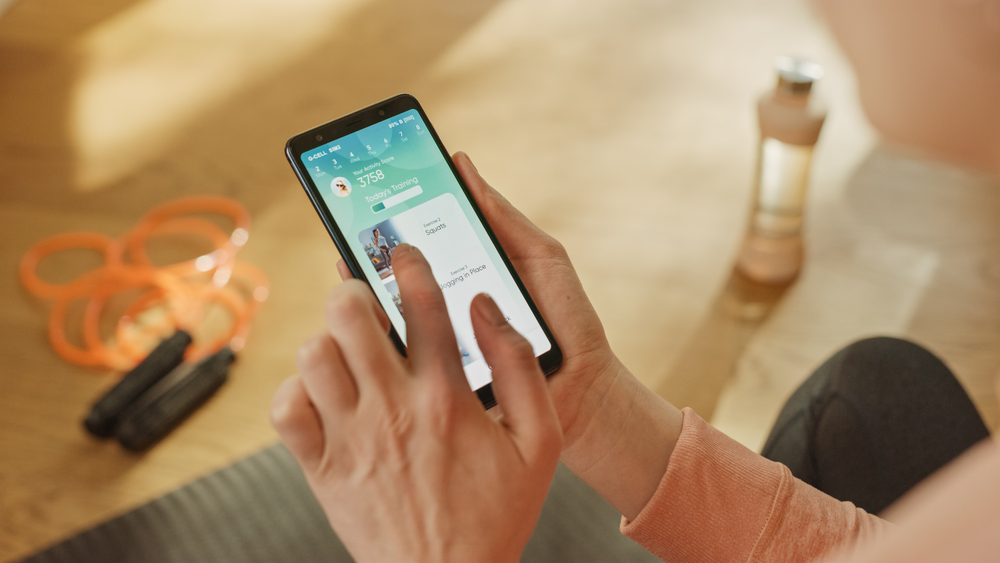
The best online personal training apps allow you to connect any devices or other apps that you use to support your health goals.
For example, people using the Fitness Lab app can connect their phone’s health and fitness tracker and third-party nutrition apps. You may even have body composition scales, wearables, sleep trackers or other devices or apps that all feed info back to your phone. If you wish, you can share all this info using our app so we can get a holistic view of your health and what we can do to help you hit your goals.
There are lots of ways of approaching sharing your data if you’d like to. Each personal trainer will have different ways of accessing this data – so it’s worth asking about if it appeals to you. For us, it means being able to look at granular data collected as you train – we can then adjust your program session-by-session to make sure you’re getting the most from your online fitness training.
Step 5. On-going program development

Although making significant changes to your health and body shape can take some time, most people are amazed at how much they can achieve in the first 4-6 weeks of personal training. Fast forward to 12 weeks, and you’ll really start to see incredible changes when you look in the mirror.
The thing is, the way people’s bodies react to fitness is complex – so what works in the first few weeks will become less effective over time. Because of this, our trainers will constantly review and adjust a client’s training plan to make sure you keep seeing impressive results.
During a consultation with Fitness Lab, we’ll explain how an online personal training program will change and develop over time. However, not all coaches will automatically talk about this – so it’s good to ask about how a program might develop if you’re speaking to a few different possible online personal trainers.
Remember, you’re the person who is paying for a professional service when you use any kind of PT. As such, you’re perfectly within your rights to question the workouts you’re being set if you don’t feel like you’re getting the results you want. If you get the impression your workouts are getting stagnant, it might be a good time to consider new online trainers – perhaps looking for one with more specialist skills to help you push to the next level.

So, in a nutshell, that’s it. You’ll start with a consultation – then your coach will put together a bespoke training plan. You’ll need to use a little technology along the way – but most apps are intuitive and easy to use.
Your trainer should be keen to keep in touch with you too – so be wary of services that effectively just hand you a program and let you get on with it. It’s not unreasonable to have a check-in call or message exchange with your personal trainer once a week. They may also ask you to video yourself doing some of the exercises so they can check your ‘form’ – the fitness industry term for the technique you’re using to carry out each exercise.
Online training pros and cons
You’ve possibly seen fitness influencers talking about online training on social media or spotted adverts for personal training services as you use your devices. These posts and services are designed to look as appealing as possible – but it’s good to stay objective when you’re spending your hard-earned cash.
Any kind of personal training comes with pros and cons – so it’s worth understanding what they are before you make your final decision on whether online PT is going to work for you.
Online training advantages
- Accessibility: If you’ve got an internet connection – or sometimes just your phone – you can access online personal training. Ideal if travelling to a studio isn’t practical or possible.
- Flexibility: Work, family, social events and a host of other factors can sometimes get in the way of in-person PT sessions. When you train online, you can fit your session into your day – even if your diary changes at short notice.
- Choice of trainers: Not everyone has access to world-class health and fitness industry professionals where they live. By choosing an excellent online personal training service, you can have the best trainers at your side, no matter where life or travel takes you.
- Privacy: At Fitness Lab, our in-person personal training clients train in private pods – but not every personal trainer has access to our level of facilities. If going to a gym doesn’t appeal to you, working out at home or in privacy might be a better fit.
- Tracking and accountability: By tracking progress, setting goals, logging workouts, and connecting with your health and fitness apps, an online personal trainer can give you amazing levels of accountability, often a key factor in transforming your fitness.
Online training disadvantages
- Limited face-to-face time: Some people like being able to meet with a personal trainer – and online personal training can mean limited or no personal interaction. This might impact some people’s motivation and accountability.
- Slower feedback: With a personal trainer beside you, you get feedback and encouragement in real-time. When you train online, you’ll instead get messages and feedback when your coach reviews your workouts and progress.
- More motivation required: Having a coach beside you can sometimes give a bit of a motivational boost in the moment. Online personal training relies more on your own motivation as you push for that final rep or last kick of effort.
- Potential distractions: Working out at home can present some distractions – such as family, pets, or visitors. This can sometimes break your focus when you’re training online.
- No or limited equipment: A physical gym or studio has a huge range of equipment that you may not have access to if you train at home.
Now, it’s worth saying that a successful online personal trainer will find ways to minimise these disadvantages – so don’t worry about them too much. If there’s something here that concerns you, have a chat with your coach and see if they have any interesting ways of supporting you when you’re working out at home.
Staying motivated when using an online fitness coach

Motivation is a big deal when it comes to exercise – and it’s something we focus on heavily here at Fitness Lab.
Again, all trainers are different – but we can provide a few tips around motivation and tell you about how we keep our online personal training clients motivated and focused.
Growing motivation
The first thing to understand is that motivation grows over time. No matter how impressive your workout program is or how many fitness apps you download, it’s unlikely that you’ll suddenly be able to ‘turn on’ masses of motivation.
Since motivation grows rather than explodes into life fully formed, we focus on building habits to help nurture your motivation. We find this is far more effective than encouraging our clients to snap into some imaginary ‘beast mode’ that has you dropping to the floor and doing push-ups between every work task you take on or between Netflix episodes!
At Fitness Lab, we start realistically. Rather than suggesting huge diet changes or insisting you start going to bed at 7pm to make sure you get adequate rest, we’ll start small – talking about little adjustments you can make to your eating, resting, and moving. When it comes to your sessions, we’ll also start by building your fitness – getting you used to regularly moving and activating muscles that don’t get used much through an ordinary day.
Celebrating success
The most important factor for us – even during these first steps – is that we celebrate success with you.
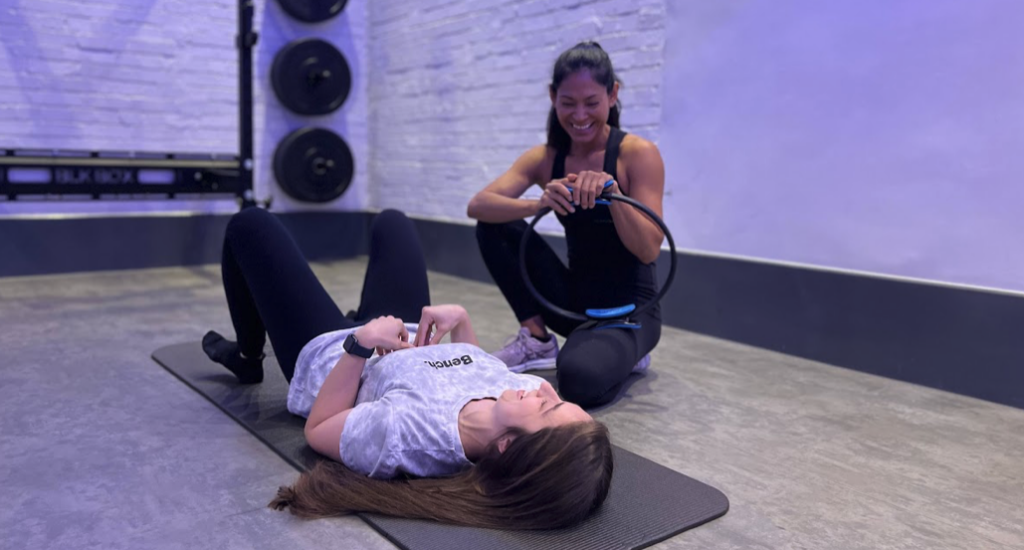
If you can drop 1lb in bodyweight, shift 1cm from your waist, or lift 0.5kg heavier today – then you can do it next week, the following week, and the week after that. These seemingly tiny steps are massively important – because they’re all steps that take you closer to your goal. We promise that we’ll celebrate every step with you.
Staying in touch
We’ve talked a little already about a PT communicating with you regularly. For us, this is a key part of helping to grow or maintain your motivation.
We’ll communicate in a way that works for you – whether that’s through the messaging service on our app, by email, over the phone, or even with arranged video calls. We’ll check how you’re progressing and talk about your workouts – and you’re always welcome to ask questions and share your thoughts.
Every one of our personal trainers is friendly, approachable, down to earth, and understands how to help clients grow their fitness in a fun and lasting way. Having an open line of communication with you is an essential part of that.
Learning about your body as your online coaching progresses
From the outside, the world of health and fitness can seem confusing and daunting. Are carbs good or bad? Should I be drinking protein shakes? Do I really need rest days? Why are my legs aching so much?!
Sure, you could sit down with some textbooks and learn about the science of all these things – but a good personal trainer will explain this kind of health and fitness knowledge as it becomes relevant to you. No complicated science or passing fad diets – just the stuff that going to help you understand your body a little better.
It can be incredibly demotivating to be confronted with a world of health knowledge and wonder what will work for you. A personal trainer will help you get to grips with it all – and it’s knowledge you’ll be able to use confidently for a long time to come.
Accountability
We’ve all been there – sticking to a diet plan or carefully counting calories, only to be seduced by the mother of all takeaways or a monster-size tub of ice cream that derails your good intentions and leads to a splurge over the next few days. And what the heck, if you’ve come off the rails for a few days, it won’t hurt to skip a couple of workouts too, right?
This kind of thing is only human – especially when there’s no one to answer to. The trouble is, it kills motivation. If you find yourself in this kind of situation more than you’d like to admit, then having an online personal trainer can give you an injection of accountability.

Don’t panic, your online personal trainer isn’t there to tell you off if you take a longing glance at a Twix – they’re just there to refocus you if it’s needed. You can share as much or as little info with your PT as you like – including calories in, daily steps, exercise sessions, etc. If they notice you’re not hitting your goals, they might get in touch to offer some words of encouragement. Then again, they might just give you tips on how to account for that tub of Ben & Jerry’s across a week of eating.
Accountability is an enormous part of hitting any goal that requires consistent good habits over a period of time. This is a prime example of the kind of support and motivation boost you get from a great online fitness coach – on top of your workout programs.
Effective goal setting
Have you ever stepped onto a scale and decided you just need to lose a stone or two? Or maybe you’ve watched Thor or Wonderwoman and started browsing gym memberships in an effort to get a chiselled physique?
These are great long-term goals, but they’re exactly that – long-term. If you expect to be there after six weeks, you’re likely to get despondent, putting the vision on the sidelines and just getting back to life as normal.
A personal trainer will help you set realistic and achievable short, medium and long-term goals. What’s more, they’ll be measurable – so you know you’re making progress. Dropping a couple of dress sizes or sculping a washboard stomach doesn’t happen overnight – it happens thanks to a series of small steps. A good online personal training coach will lay out every step – and it’s a huge motivation boost to see how much you’ve achieved.
Online personal training FAQs
Since online personal training is a fairly new concept, it’s completely normal to have questions about how it works and whether it’s right for you. We’ve covered some of the questions you might have here:
How do I choose the right online personal trainer for my needs and goals?
This question actually applies to both online personal training and in-person training.
Firstly, it’s a good idea to try to avoid getting caught up in any social media hype that you might see. Some personal trainers will post before and after shots or impressive workout pictures – but that doesn’t mean they’re perfectly suited to your needs.
To find someone that’s exactly right for you, start by thinking about your goals. Maybe you’d like to lose weight? Perhaps you’re keen to regain some fitness after pregnancy? Maybe you’d like to focus on improving your strength or becoming pain-free after an injury?
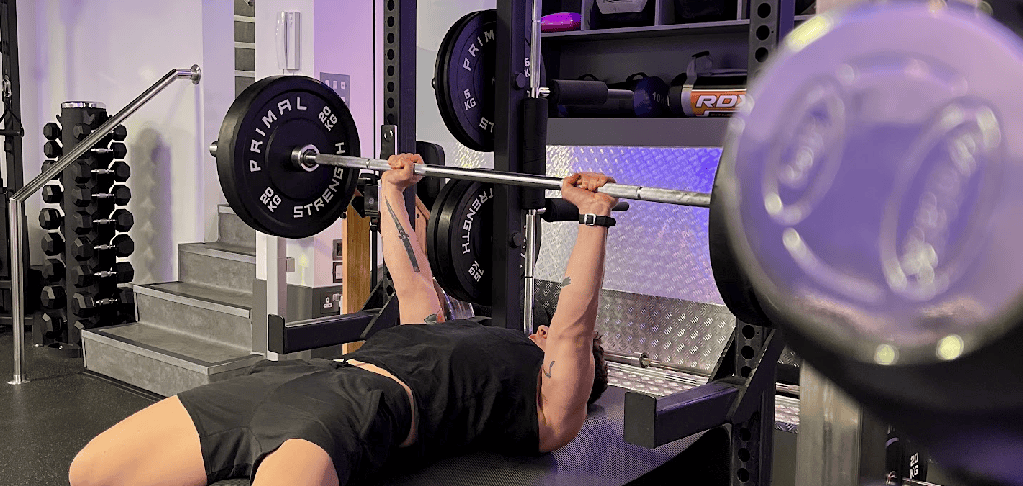
Whatever your goal, look specifically for personal trainers who specialise in that area. We’re fortunate to have a team of incredibly experienced and highly qualified coaches, so we can always match people with someone who can help with specific goals. However, not all online personal trainers can boast this kind of team experience.
If you’re not sure – ask. And don’t be afraid to keep looking if you’re not convinced the PT you’re considering is right for you.
What kind of qualifications should an online personal trainer have?
Unfortunately, almost anyone can advertise themselves as an online training business or grow a big social media following without any certification. As such, it’s really important that you ask about a PT’s qualifications.
To be a personal trainer in the UK, a person needs to have completed a Level 3 qualification in Personal Training. This is the essential qualification for personal trainers in the UK. It covers advanced knowledge of anatomy, physiology, nutrition, and exercise programming, enabling the trainer to work one-on-one with clients.
This kind of qualification is even more important when working with someone online. A PT will need to be highly knowledgeable to make sure they’re creating programs that can be safely carried out by personal training clients who can’t be observed working out in a studio or gym.
Again – just ask the question. If you’re not convinced the PT you’re talking to is qualified to deliver personal training sessions, then look elsewhere.
Do I need any equipment or specific technology to work with an online personal trainer?

People are often surprised to find out that they can get impressive results from training without having to invest in gym equipment. Most online training programs will be focused on bodyweight exercises – so there’s no need to spend a lot of money on equipment to get started.
That said, it’s a good idea to buy a yoga mat to give yourself a cushioned area on the floor – it can help to make your exercises more comfortable. Don’t worry though, you can usually pick up one that’s perfect for between £10-£20.
We have clients that have achieved incredible results from online personal training using just bodyweight over months or even years – so if you’d like to stick with bodyweight exercises, your coach will program accordingly.
If you do decide to add some equipment, your trainer may suggest adding a few cost-effective and easy-to-store items, such as dumbells, resistance bands, a kettlebell or a stability ball. Of course, if you have some equipment already – whether that’s a few weights or a full in-home gym, your coach will be able to program around what you have.
Aside from fitness equipment, you will need to have a device you can use to access your workouts. This will depend on the online personal trainer you’re working with – but usually, just a smartphone will be perfect.
How much does online personal training cost?
This is a tricky question to answer as the cost of personal training can vary enormously based on a host of different factors.
For instance, a highly qualified personal trainer is likely to cost more than someone with limited qualifications and experience. Likewise, a personal trainer with specialist skills (such as injury rehab, pre- and post-pregnancy fitness, strength and conditioning, etc.) is probably going to cost a little more than someone with just a base-level range of skills.
In truth, this question actually often boils down to value. An extremely effective personal trainer who charges £70 per hour might help you achieve more in 2-3 sessions than a cheaper per-hour coach could in 7-8 sessions. Because of this, the seemingly ‘more expensive’ coach is actually the cheaper and more effective option.
Ultimately, the best way to judge value for money is to try a service. A free consultation is a good place to start – this will give you a feel for the knowledge and attitude of the coach. If that feels right, then book some sessions and see if you enjoy online personal training and the results based on how much you can justify spending.
Conclusion: How does online personal training work, and is it right for you?
Online personal training offers a convenient, flexible, and accessible approach to fitness.
The process typically begins with a consultation to discuss fitness goals, history, health conditions, and lifestyle factors. After the consultation, the trainer creates a bespoke program tailored to the client’s needs and goals. Then, training sessions can be accessed through a dedicated app or third-party platforms, with video guides and ongoing contact with your coach to help with technique.
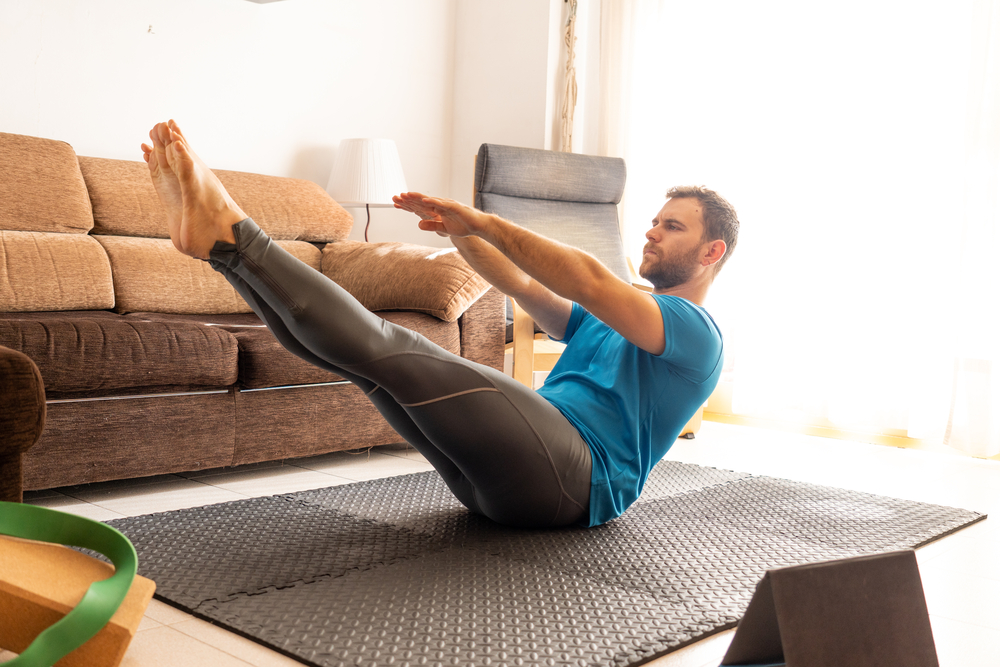
Whether or not online personal training will work for you depends on a host of factors. If you need a lot of face-to-face interaction, immediate feedback and struggle with the distractions that training at home can bring, it might not be ideal. However, if getting to gym or studio sessions is a challenge and flexibility sounds good – and you like the idea of effectively having a motivational personal trainer in your pocket, then it could be perfect for you.
Next step? Book some consultations and get a feel for the trainers that are out there. Remember, you’re number one – so don’t settle for generic programs, unqualified coaches, lacklustre communication, or working with someone who doesn’t motivate and inspire you.
